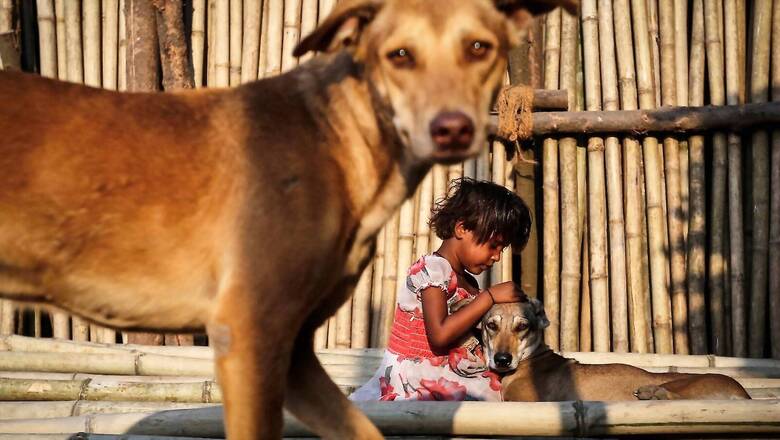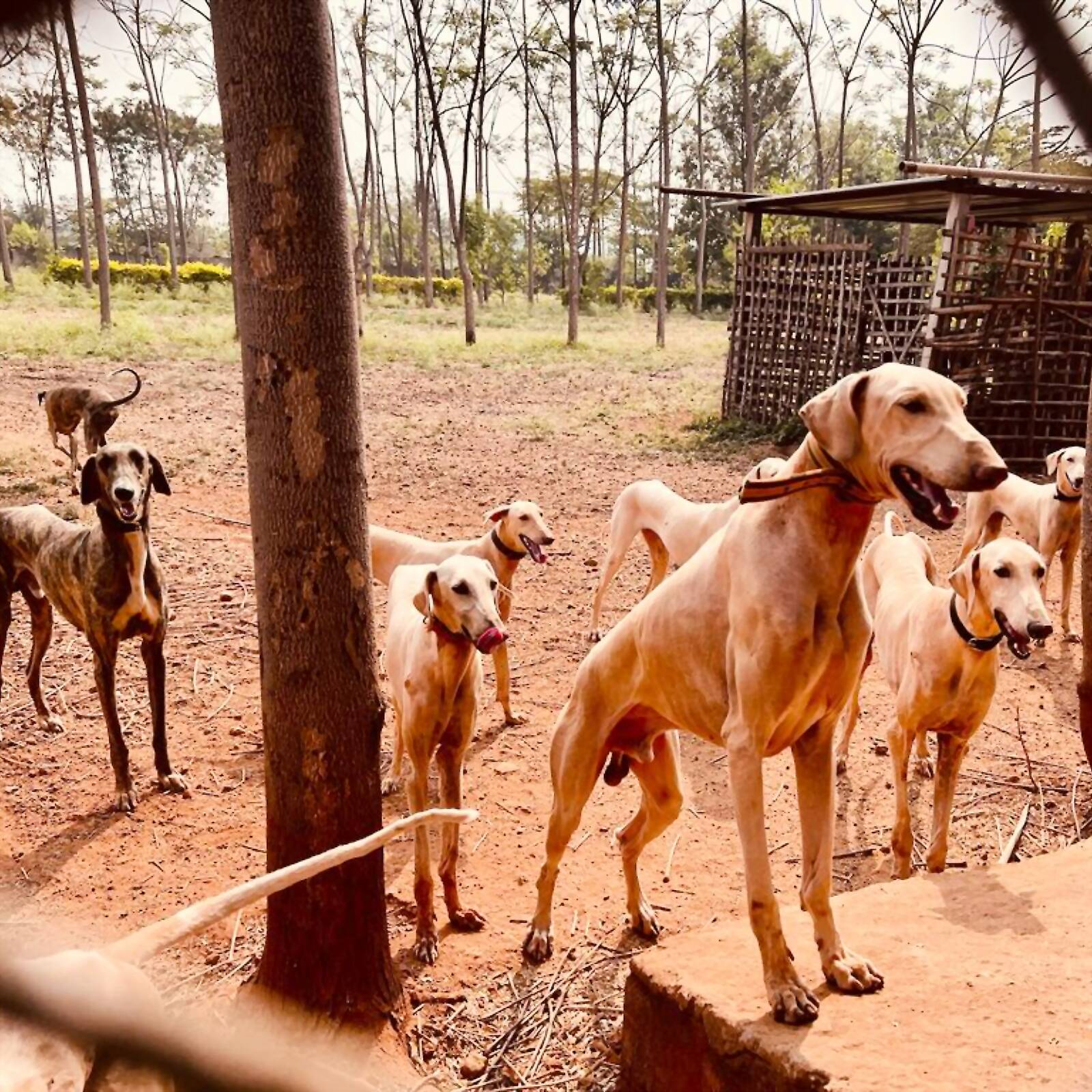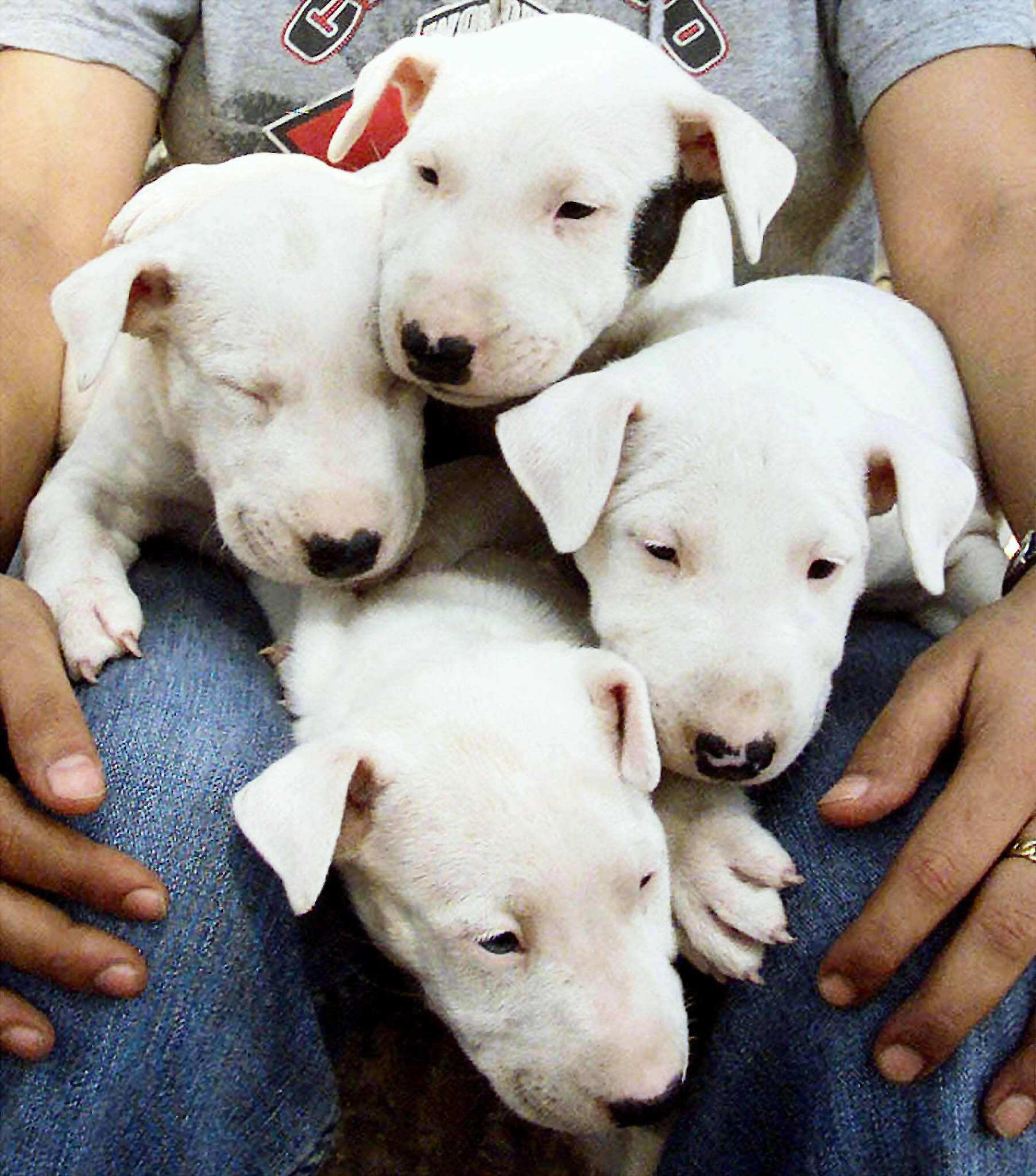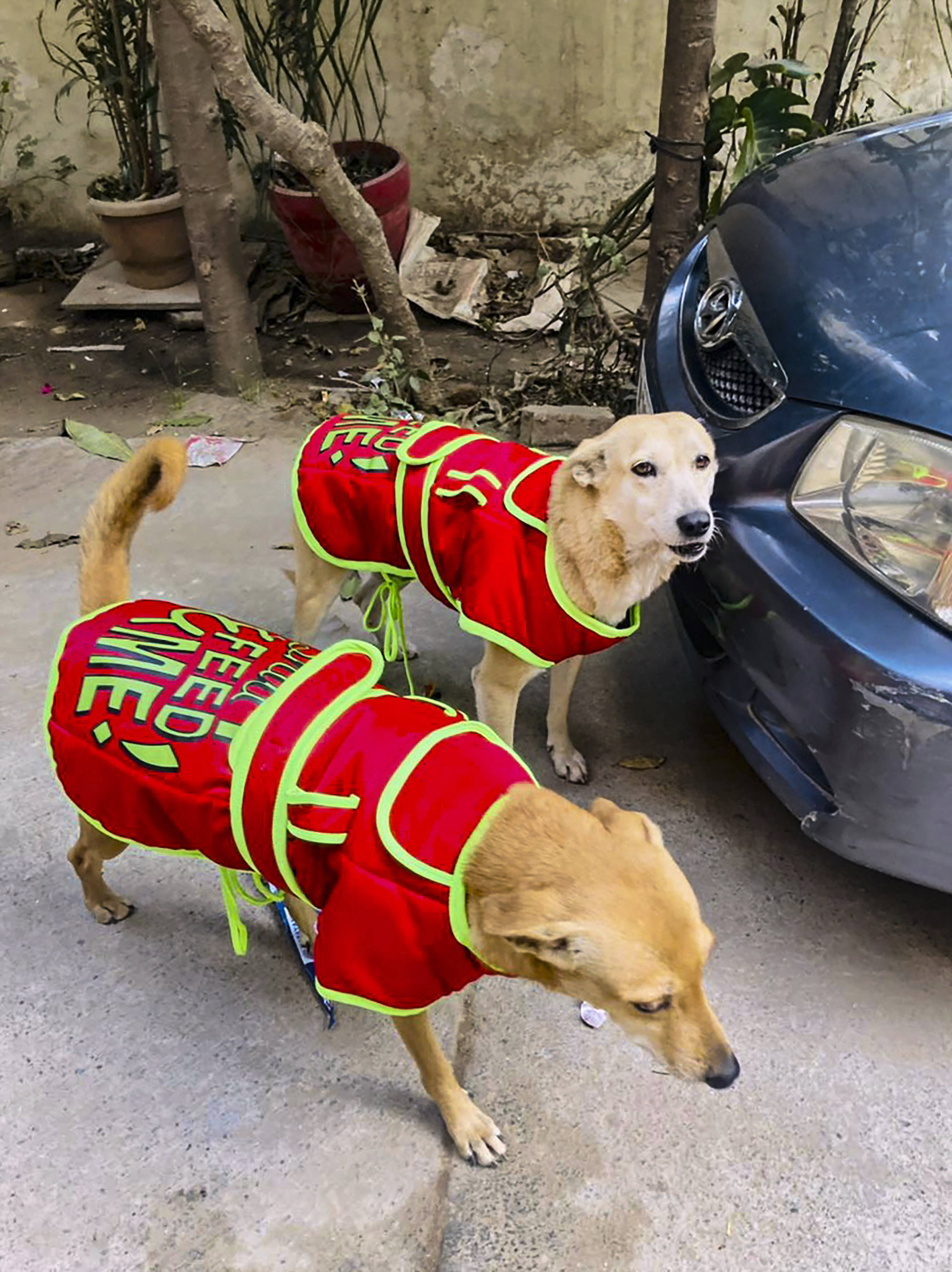
views
Dog videos go viral every year. There is hard evidence now that people spend much of their time tracking the activities of man’s best friend on social media. This year, especially, was the year of the dog as they made news for all the wrong reasons but got a lot of it right too (as per usual).
In India, most particularly, videos of dogs biting humans went viral, and much anger was directed at canines – tragedies like a stray mauling a child in Noida to a pet pit bull’s fatal attack on his old owner left the internet shocked. Amid the horrifying bits, however, there were some heart-warming clips of dogs protecting their humans while one or two of these bravehearts even laid down their lives for the country.
There were demands for regulating dog ownership in and around Delhi-NCR, with the Noida administration taking the lead in running a registration drive for pet dogs and popularising an app for it. There were glitches but those were only teething troubles. But teething does not last forever, no matter how catastrophic – those who know dogs will agree.
Much of this once again made us realise why these creatures are our best friends despite all. And why it is increasingly important to create systems where these animals continue to coexist peacefully with humans – be it pets, stray populations, or abandoned canines.
Since we are entering a new year, it is best to begin with the good.
Of Corgis and royal hounds
Dogs with a touch of royalty made headlines this year. Britain’s longest-serving monarch Queen Elizabeth II, who died on September 8, was a great lover of Corgis and owned 30 of them in her lifetime. Her beloved companions were there to bid her goodbye on her final journey to her resting place.
With her death, there was increased interest in the breed for the first time as their price doubled to new highs. The small herding dogs started selling for over $2,678 (Rs 2.21 lakh) after the monarch’s funeral in September. Corgis are small, short-legged sandy-coloured dogs with pointy ears.

Back home in India, Prime Minister Narendra Modi’s security squad got a bit of a desi boost with the addition of the sharp-sighted and agile Mudhol Hound. Two puppies of the famous breed from Karnataka found a place in the prime minister’s special protection squad. These good-looking hounds with tall and lean bodies can run long distances, making them adaptable for hunting and sighting.
This was after Prime Minister Modi expressed an interest in Indian breeds and even encouraged the adoption of desis during one of his ‘Mann ki Baat’ programmes. The Mudhol Hound has a long history going back to the times of kings and queens as the breed gets its name from the princely state of Mudhol, which was ruled by the Ghorpade Marathas and was part of the Bombay Presidency.
Loyal unto death
Tributes poured in for Axel, an army dog killed in an anti-terror operation in Jammu and Kashmir’s Baramulla district in August. The dog was given a solemn military service even as its handler became emotional. The two-year-old assault dog took three bullets to the head but helped his team neutralise a lone militant. A Belgian Malinois, Axel had been part of some successful operations and was an efficient assault dog. Another canine called Zoom also succumbed to injuries after being critically injured in an anti-terror operation in J&K’s Anantnag district in October. The canine received two gunshot wounds on the face and rear right leg but continued with its task resulting in the death of the two militants.
Dogs have been in the military since 1960 and ‘Mention-in Despatches’ is the highest gallantry award for an army dog. Different dog units have various breeds for a number of tasks. While breeds such as the Malinois and German Shepherd are mostly used as assault dogs, the Labrador Retriever is used as a sniffer dog in bomb squads. The army also recruits Great Mountain Swiss, as well as indigenous breeds such as Mudhol Hound and Bakharwal.
For the love of dog
There are numerous tales of dogs doing heroic and loving deeds and, sometimes frankly, just existing. But this year, humans going all out for their furry friends took the internet by storm a number of times. From something as bizarre as the wedding of two dogs to something as simple as commuters letting a dog sleep on a bus, some of social media’s best moments were about humans fulfilling their role as dog’s best friend.
A viral video of a sleeping dog occupying two seats on a bus somewhere in Chile, is testament to the fact that dogs have a special place in human hearts. Despite there being a number of passengers waiting to get a seat, no one disturbed the sleeping pooch. The bus was packed but passengers around him continued to stand and wait for other seats to get empty rather than wake the dog. The Twitter video has over 66.3k views and 1,000 retweets.
Although the wagon was crowded and he was occupying 2 seats, nobody disturbed his rest❣️????via Karen Olave ????Laurasia Mattingly•Choose Kindness pic.twitter.com/mboB6Nj4KC
— Stefano S. Magi (@myworld2121) October 5, 2022
In Gurugram, two dogs were married in traditional Indian style complete with mehndi, haldi and phere. A couple that does not have children wed their beloved pet Sweety to the neighbour’s dog Sheru. Close to 100 invitations were sent out in the neighbourhood at Palam Vihar Extension.
A travel influencer proved that dogs made the best travel companions as he took his pooch all the way to Ladakh from Delhi on a bike, traversing the world’s highest motorable road. Chow Sureng Rajkonwar took his dog Bella to Ladakh and even explained to other dog lovers wishing to do the same how to train dogs for adventure trips. The duo did the Zanskar and Ladakh circuit and posed with the Indian flag at Umling La pass.
Then there are the daredevils. A video that earned heaps of praise on the internet was a man putting his own life at risk to rescue a dog stuck in a flooded dam. In the video, the man can be seen going down the dam with a rope and bringing the stray dog back to safety. There was another video of a man from Mumbai, who jumped in front of an approaching local train to rescue a dog trying to cross the tracks. A blogger from Noida has even risked police action by taking his pet dog to Kedarnath temple. The man said his dog has been visiting temples for the past four years and defended his decision to take it along saying dogs were a reincarnation of god.
Give a dog a bad name
Now to the horrifying bits. Fearmongering about certain breeds as pets and serious dog bite incidents led to angry outbursts on social media against urban stray dog populations, dog lovers, and pet owners. The pit bull was the most abused of all breeds, with a vicious incident involving the dog where an 82-year-old woman was mauled by her own pet in Lucknow in July. The woman, a teacher living in Qaiserbagh area of the city, was walking the pit bull and another pet Labrador on the roof of the house when the neighbours heard her screams. The pit bull, named Brownie, kept biting and attacking the woman for over an hour before her son could rescue her and rush her to a hospital. While she succumbed to her injuries, the civic body took away the pit bull in an animal control van.
The outrage against pit bulls reached a crescendo when a 10-year-old boy in Ghaziabad was attacked by a pet at a local park. The pit bull tore off half of the child’s face for which he had to get 150 stitches. There was widespread debate over whether pit bulls were a dangerous breed after all, with many dog behaviour specialists stepping in to explain the dog’s unregulated and unlicensed breeding in India. The dog, which is mostly used for sporting events such as racing and hunting, is bred to be aggressive but outside of India, it is known to be a popular family dog with a gentle demeanour. There are numerous videos of “pitties” being left to mind children, adopted from shelters and brought in as pups.

Not just pit bulls, even desis on the streets earned a bit of a bad name for themselves this year. As the year drew to a close, there were reports of a toddler being mauled by stray dogs in Kerala’s Kollam district. The incident took place on Friday, and the 18-month-old is critical with serious injuries all over the body. In another shocking incident in October, a seven-month-old was mauled by a street dog inside a housing society in Noida, where her parents were working as construction labourers. According to doctors, her intestines were pulled out in the attack. In Madhya Pradesh, too, a five-year-old girl from Khargone died after being attacked by a pack of strays.
Breeding discontent
A few incidents of dog bites in housing societies in Delhi-NCR as well as other states have prompted several measures from the administration and law enforcement agencies. Noida was the first to take action and call for pet registration after isolated incidents of pet dogs biting children inside lifts and guards on duty. The authorities have made pet registration mandatory by January 31, 2023, and delay will attract penalty. An owner can register their pooch for Rs 500 on the Noida Authority Pet Registration mobile phone app.
The new registration policy also mandates sterilisation and vaccination, failing which an owner may have to pay up to a fine of Rs 2,000 per month. The policy also states that owners will have to pay a compensation of Rs 10,000 if their pet injures any person. As for the matter of stray dogs, the Noida authorities have specified the provision of space to resident welfare associations, apartment owners associations and village residents for shelters for stray dogs, and sick and aggressive street dogs. Dedicated feeding points will be made inside societies and residential sectors, where people can continue to take care of strays.
Gurugram has banned pet dogs of 11 foreign breeds: Rottweiler, Neapolitan Mastiff, Boerboel, Presa Canario, wolfdog, bandog, American Bulldog, Fila Brasileiro and Cane Corso. The municipal body was directed by a consumer disputes redressal forum to cancel licence if any issued for those keeping any of the banned breeds as pets and the dogs will be taken into custody with immediate effect. Every registered dog will have to wear a collar to which a metal token will be attached and each family can keep only one dog at a time.
The animal department of Varanasi Municipal Corporation has also issued an advisory urging pet owners to avoid rearing canines of hunting breeds at home. The advisory categorises over 100 dogs as “dangerous” breeds being raised as pets in homes across Varanasi, including German Shepherd, Rottweiler, Great Dane and Siberian Husky. Even the Ghaziabad Municipal Corporation has banned residents from keeping the pit bull, Rottweiler and Dogo Argentino breeds as pets. The civic body has issued a host of guidelines for pet owners ranging from getting a licence for their dogs, to regulating the ‘one family, one dog’ formula.
Kerala, especially, has been hit by an escalating stray dog-man conflict for some time and over 20 people have succumbed to rabies this year alone, according to figures. In fact, in an act of sheer cruelty, a canine, accused of attacking people, was beaten to death and publicly displayed. More than a dozen stray dogs were found dead due to alleged poisoning in some areas of the state. People seem to have taken matters into their own hands with the Kozhikode mayor Beena Philip, who opposed the mass killings of the strays, being forced to change her stand. The state government has been criticised for its failure to control the canine population as well as mandate sterilisation and vaccination measures.
Barking instructions, biting truth
Untoward incidents often result in haphazard lawmaking and policy legislations, most of which do not see the light of day. Scientific methods such as animal birth control and vaccination if implemented properly can help control canine populations, according to experts. And as in the US and UK, India too can regulate ownership of dogs. But much of it depends on infrastructure.
There is a high court petition asking to strike down a particularly brutal law that asks unregistered and unclaimed dogs to be “destroyed” in Delhi. A woman, who has moved the court on “behalf of all dogs”, has argued that recent incidents of dog bites in Ghaziabad and Noida were “staged”. This petition challenges an MCD advisory asking people to register their pets.

In a recent order, the Supreme Court has also said capturing of dogs and taking them into custody is not permitted. This observation of the top court is in contradiction with a number of guidelines issued by the civic bodies in Delhi and neighbouring regions. In fact, the SC also observed that stray dogs may become aggressive if they were stopped being fed. It said street dogs were not meant to be kept in captivity and those who feed them cannot be forced to adopt them.
According to animal behaviourists, there is no consistent data on whether some breeds are more dangerous than others. This was mainly due to anomalies in breed identification and incidences of dog bites among specific breeds. In fact, many experts said dog bites were mostly isolated incidents at large and can, at best, be considered a menace based on local dog populations and territory covered. There are, however, other factors that can contribute to animal aggression irrespective of breed. Inadequate training and supervision, abuse, neglect and tying up pets for long periods of time are some of the mistakes commonly made by dog owners. Other than that, breeding for specific purposes such as protection, dog fighting and other sporting events that harmed a dog’s psychological makeup, could contribute to behavioural issues in breeds at large.
(With agency inputs)
Read all the Latest India News here




















Comments
0 comment